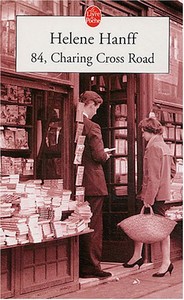 Happy Administrative Professionals Day. Hold your head just a little bit higher during your daily Starbuck's run for the overbearing cretin who pays your salary while slowly stripping away your sense of self-worth and hope for the future.
Happy Administrative Professionals Day. Hold your head just a little bit higher during your daily Starbuck's run for the overbearing cretin who pays your salary while slowly stripping away your sense of self-worth and hope for the future.For almost 3 years, I administrated professionally (or assisted executively, depending on your choice of euphemism) for the head of artist development at a major record label. While this was my first full-time job when I finished college, it was my third job in the music industry. Even still, I had no idea what "artist development" was. It seemed more interesting than crunching numbers in royalties, so I wore my nice pants and gave wide-smiling, enthusiastic answers when I met with the human resources coordinator. She explained, with a nervous titter, that my potential boss was "a bit of a character." Yeah, well, I was just coming off a job in metal radio promotion where characters abound. Bring on the crazy.
On my first day of work, Steve called me into his office. He lit a cigarette and put his feet up on his desk. "Listen to me," he said. "There is nothing you can fuck up that I can't fix with one phone call. Nothing. So if you fuck up, and you will, I don't care how bad you think it is. Come and tell me, and I will fix it."
At the time, I took this as a clarification of the limited scope of my influence. So insignificant was I that any mistake I made couldn't really have any real consequences. But, as I would learn over the next few weeks, Steve's assessment had more to do with Steve than me. He was master of his domain. The reason I was there was because I needed to handle the annoying administrative details so that they didn't get in the way of his pressing business of Being Steve.
On the plus side, Steve was pretty self-sufficient, as executives go. He made his own calls, kept his own schedule and generally only utilized me to order his lunch (which he would put on his company card, along with mine), book his travel and creatively manage his expense report to make sure things like $400 worth of strippers for Mick Fleetwood were approved without too much quibbling. In return, I was left to my own devices to do my job of national tour marketing without much scrutiny. Steve and I developed an unspoken understanding that I had his back and he had mine. Even if he spent the majority of his day smoking behind closed doors while I was on hold with a promoter in Texas, trying to squeak out the last two Rush tickets in captivity.
Because he was 6'3", from Long Island and because he was one of those people who simply didn't give a fuck, people were wary of Steve. He was old school. He had no interest in office politics, so if he thought you were an asshole, he would smile at you and say "You're an asshole." There was not a lot of typical wink-wink, nudge-nudge music industry bullshitting involved. I can understand why human resources was snickering to itself when they sent me off to work for him - clearly they thought he would make me cry inside of two weeks. While there were days when he did irritate me to no end, Steve was really the best boss I've ever had. He respected the fact that I was good at my job, even if he hadn't the faintest idea what I did all day. He just knew no one was complaining to him and interrupting his afternoon nap.
The thing about being an executive assistant is that your influence, at least inside the office, isn't limited at all. The reason executives even have an assistant is because there are things they need to get done that they don't know how to do. Knowledge is power. For all their 6-figure salaries and far-reaching influence, there are moments when you realize the balance of power isn't as off-center as you thought.
After one of the many "restructurings" at the label - the next of these would liberate both Steve and myself to the greener pastures of artist management - we were all packing up to move to a different floor in the building. I had been listening to the whine of a tape dispenser coming from Steve's office all morning as he boxed up all his plaques and assorted office flair.
I was discussing lunch options with another assistant when suddenly the empty tape dispenser came flying out of the office and landed down the hall by the trash disposal.
A minute later, Steve appeared. "Fucking shit," he said by way of explanation. He pointed down the hallway. "Fucking thing is out of tape."
I maintained a straight face, against all odds. "You do know you can put a new roll in one of those things, right? You keep the dispenser and just put more tape in."
He was impressed. "Oh yeah?" He went to retrieve the dispenser from the trash.
Later in the day, I found him cleaning his glass coffee table with furniture spray and his oak desk with Windex.
I miss Steve, I really do.



 Duncan Sheik / Daylight (2002)
Duncan Sheik / Daylight (2002) Ricky Warwick / Tattoos & Alibis (2003)
Ricky Warwick / Tattoos & Alibis (2003) BT / Movement In Still Life (2000)
BT / Movement In Still Life (2000) Mike Viola & The Candy Butchers / Falling Into Place (1999)
Mike Viola & The Candy Butchers / Falling Into Place (1999) Moke / Carnival (2001)
Moke / Carnival (2001)
